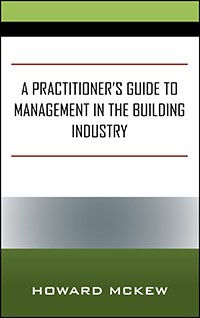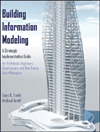The real danger for our industry is that if we do not grow rapidly enough to provide this value-added service, there is a host of information systems and information technology (ISITs) types that will. Their perception of the depth and width of our industry concerns me. Although ISITs have a better understanding of the clients' enterprise and Web ways, they lack the greater understanding of the complexity of our industry.
Growing Pains
I equate the relationship to the metamorphosis that occurred during the DDC revolution when we found our industry - which had traditionally worked with analog hardware devices, physical control valves, and dampers - dragged, kicking and screaming, into the virtual world with DDC.DDC existed only in the memory of newly fashioned computer panels and evolving personal computers. The metamorphosis caused a revolution in our industry and required that the business model for all control companies change. It required that old dogs learn new tricks, and new dogs learn the traditional control industry.
The revolution introduced many new players to the industry. Those with their minds well in the virtual world and the new technology excelled at moving forward. The traditional control companies steeped in traditional controls were able to move ahead only when the new leaders created market shifts. Their ties to the past became liabilities instead of assets.
Read Tom Hartman's prediction from last month's "Building Automation" column entitled, "We the People:"
"I predict a very strong movement to 'occupant integrated' HVAC controls within the next decade. My prediction is that by the second decade of this century, most class "A" office spaces will be required to offer individual control of thermal and lighting levels. This integration will most likely be Internet-based. Also in the same time span, I see much building operations and maintenance will also become Internet-based with fewer operations personnel in individual buildings. Such personnel will become more specialized and perform a smaller scope of services in many more buildings."
This issue is further discussed in the August issue of Engineered Systems' supplement, "Web-Based Facilities Operations Guide"; both articles demonstrate real examples of the movement and the requirements for us to refocus on excellent Web convergence and integration.
The first few years of the DDC revolution, our industry created a stable of "awful mated buildings," and I fear this could occur again with our first attempts at Web convergence.
My Call to Action
Our industry has a limited window of opportunity to control the successful convergence to our Web-based clients. We have the knowledge to make these transitions work better than anyone. We know that we must significantly increase our knowledge of Web-based ways and add "Web heads" to our corporate structures. We can hire or create within, but our focus for the next few years must shift from hardware integration to successful Web integration and convergence.It isn't that the evolving hardware integration standards aren't important, it is an issue of running the risk of losing a large market in the future if we do not complete our connection to the Web world.
As the cost of hardware drops and engineering of DDC systems becomes automated, our industry will shrink if we do not move quickly to the next level. There is much work to be done, and this is likely the closest we will ever get to the ultimate interface with the endusers of our BAS. The importance of this and the speed at which we move is cardinal.
Our industry is about providing client comfort services. Our clients' information flow model is becoming Web-based, and the transition to Web-based solutions is not only desirable, it is becoming mandatory ES



